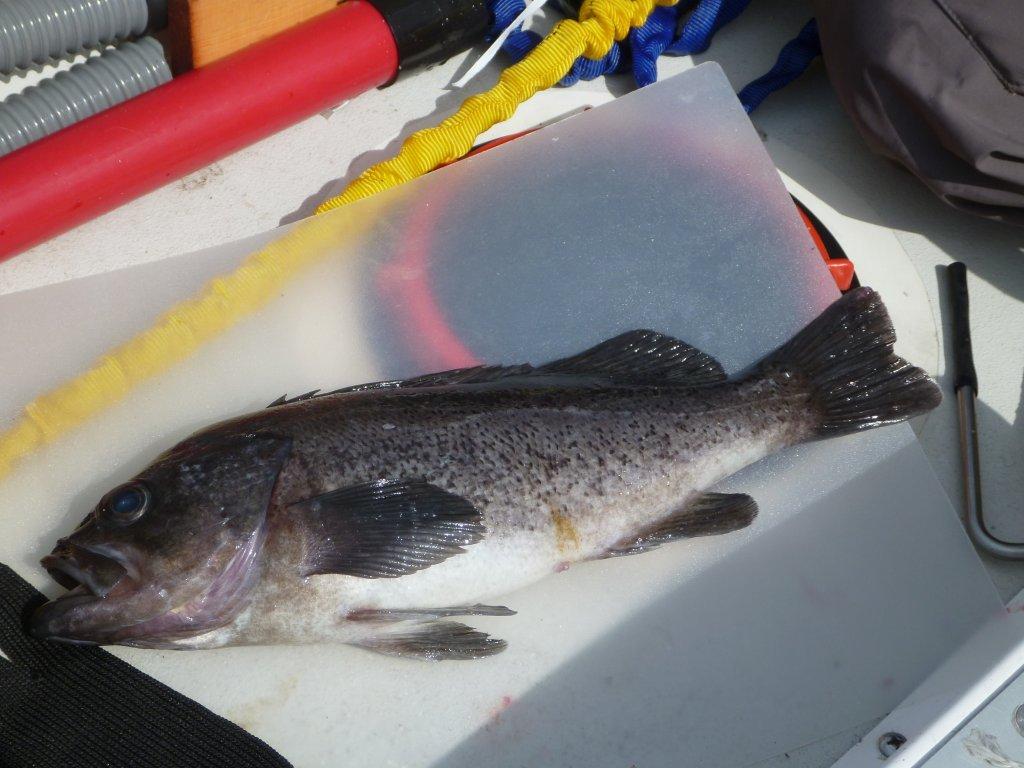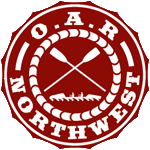 Saturday, April 21, Midday
Saturday, April 21, Midday
Adam watched the fishing rod bend slightly. He was in the bow seat and called for Markus to reel it in from the stern where he was preparing food. Whatever was on the end was not a fighter. As the molted brown fish that Adam called rock cod came into view, it looked like we had been dragging it for a while. I climbed out of the cabin as it was being pulled on deck, excited at the prospect of cleaning a fish and turning it into a dinner or even a snack for the five of us. As it lay beside the track it was clear it was not quite dead yet so I dispatched it quickly–it was ugly. Although I have no problem eating meat, I don’t like killing things. I put on Kevlar gloves and got a knife to clean it. Conflicting thoughts went through my head. This was the first fish that has ever been brought on deck of the JRH. First, where could I clean the fish in this small area that would allow for the least amount of mess? I settled on the gunnel. The Kevlar gloves provided a good hold on the scaly b
area. Second, where do I cut in the body, I began with his head. On my way to the guts it slipped, and our fish, that had sacrificed its life for our food, fell into the water! I reached in the water up to my shoulder and almost caught him, then I began swearing angrily as he floated just out of reach. I looked back, unable to read the faces of the crew behind the large sunglasses, yet detecting shock and disappointment. Adam was so proud of his fishing rig, spending a lot of time back at Port Hardy making sure it would work. I know it was just a fish, and a common fish at that, but now it was feeding its fellow deep water denizens. For it to have any fate besides our stomachs, seemed like a disproportionately terrible waste. I don’t like to waste anything.
Saturday, April 21 afternoon
South of us the red and white Canadian coast guard vessel sat in the bay behind the light house on Cape Scott. To the not so distant west white caps broke on the shallow sea floor a half mile out around the land on which the light house was situated. I was feeling slightly sea sick from computer work in the cabin when I crawled out to join Greg as we rowed through the infamous cape. It was sunny and a current was pushing us 3.5 to 4.5 knots. Very quick rowing, especially for how heavy it felt. We gave the breaking whitecaps a wide berth, but it did not take too long to get into the troubled waters of the cape.
The boat rocked and rolled under us. With each stroke we tried to anticipate the movement of the next wave attempting to keep up some semblance of a matching stroke. Rick came out and puked. Greg had done the same just after we crossed the bar earlier that day and I was not feeling so hot. Indeed, as we rounded the cape and began to take the waves on the beam, I leaned over off the oars and joined the rest of the American contingent on the boat with a yellow sacrifice to Poseidon.
Crossing Cape Scott was a major mental victory, as was the bar and rounding the upcoming Brooks peninsula of which I could just make out on the horizon. Rick and I sat on deck as Greg and Markus rowed, then switched in with Adam. Out of the south, large V-formations of birds at least an eighth of a mile long headed north. It was Canadian geese. Usually I associate them with the ungainly beasts that make messes on docks, but out here, heading up the coast in formation, they looked almost noble.
